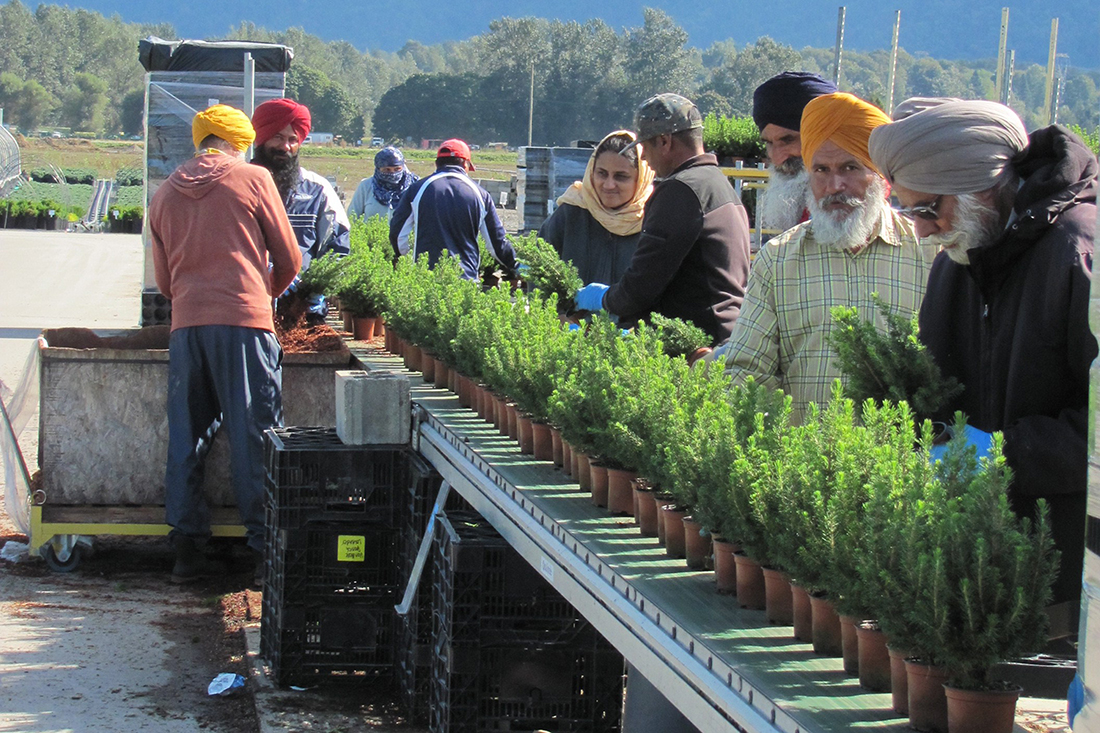BC ranks fourth in Canada in terms of farm labour demand, according to a report released this week by the Canadian Agricultural Human Resource Council.
The report indicates that BC’s farm sector will have an annual shortfall of more than 15,000 domestic workers by 2029. However, this is an improvement over 2017, when the shortfall in BC was the third-greatest in Canada at approximately 12,000.
The report indicates that the farm sector will benefit from several factors, including net in-migration from other provinces as well as from overseas. Horticulture is expected to be hit hardest, particularly greenhouse operations, though the adoption of automation is helping address the situation.
On the plus side, BC ranks among the provinces least affected by the retirement of its existing farm workforce. While aging farm workers will have a significant impact on the labour supply in other provinces, BC is second to PEI among provinces least affected.
All told, CAHRC expects 39,600 fewer Canadians will be available for work in the farm sector by 2029. This will translate into an overall shortfall of 123,000 domestic workers, up from a shortfall of 63,000 today. This represents a third of the anticipated demand for labour in 2029.
While the gap will be felt most in central Canada, the shortfall in BC will represent approximately 12% of the national total.
CAHRC estimates the current cost of the labour shortage at $2.3 billion in lost revenues, as crops can’t be planted, tended and prepared for market. This was a situation many growers in BC encountered last year, when seasonal agricultural workers from Mexico were late or delayed altogether from arriving.
CAHRC will release a complete analysis of the labour market in BC and other provinces in the coming weeks.
SIGN UP FOR FREE FARM NEWS UPDATES DELIVERED TO YOUR INBOX EVERY WEDNESDAY MORNING.

